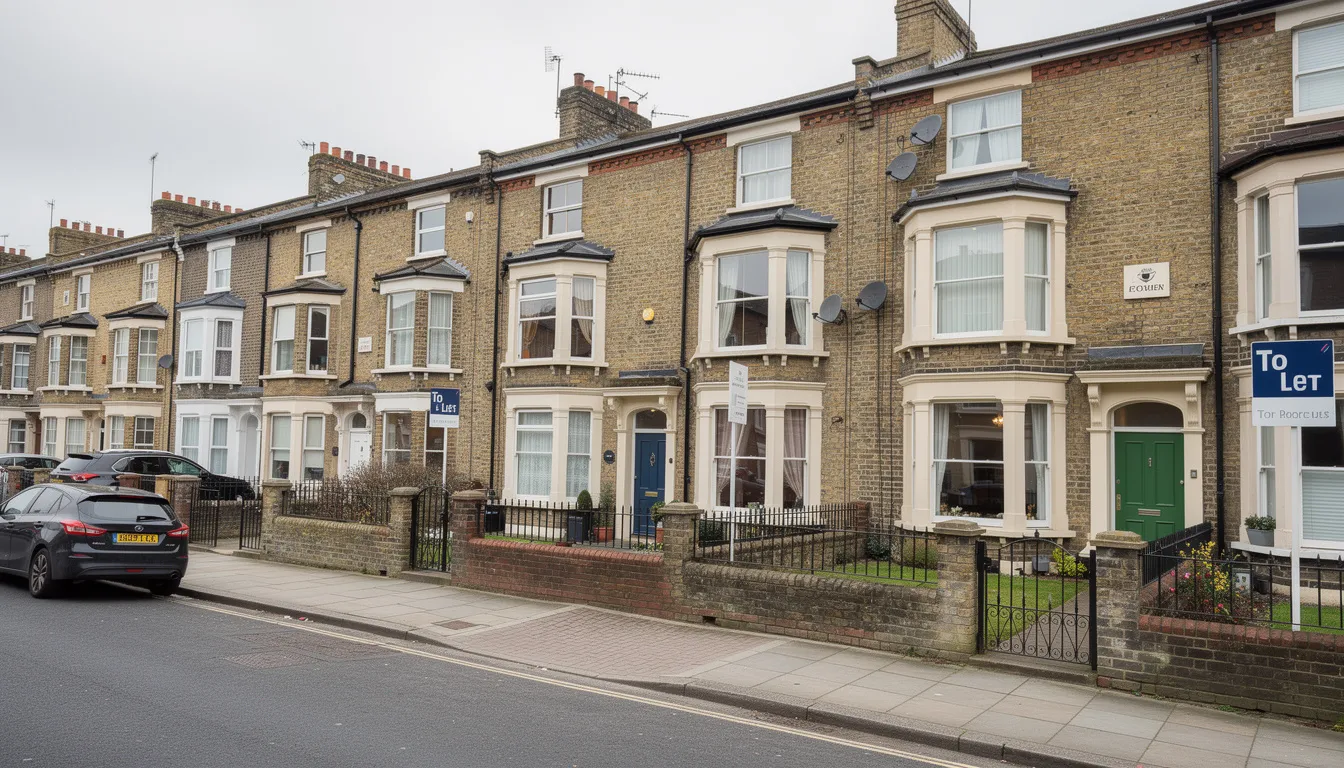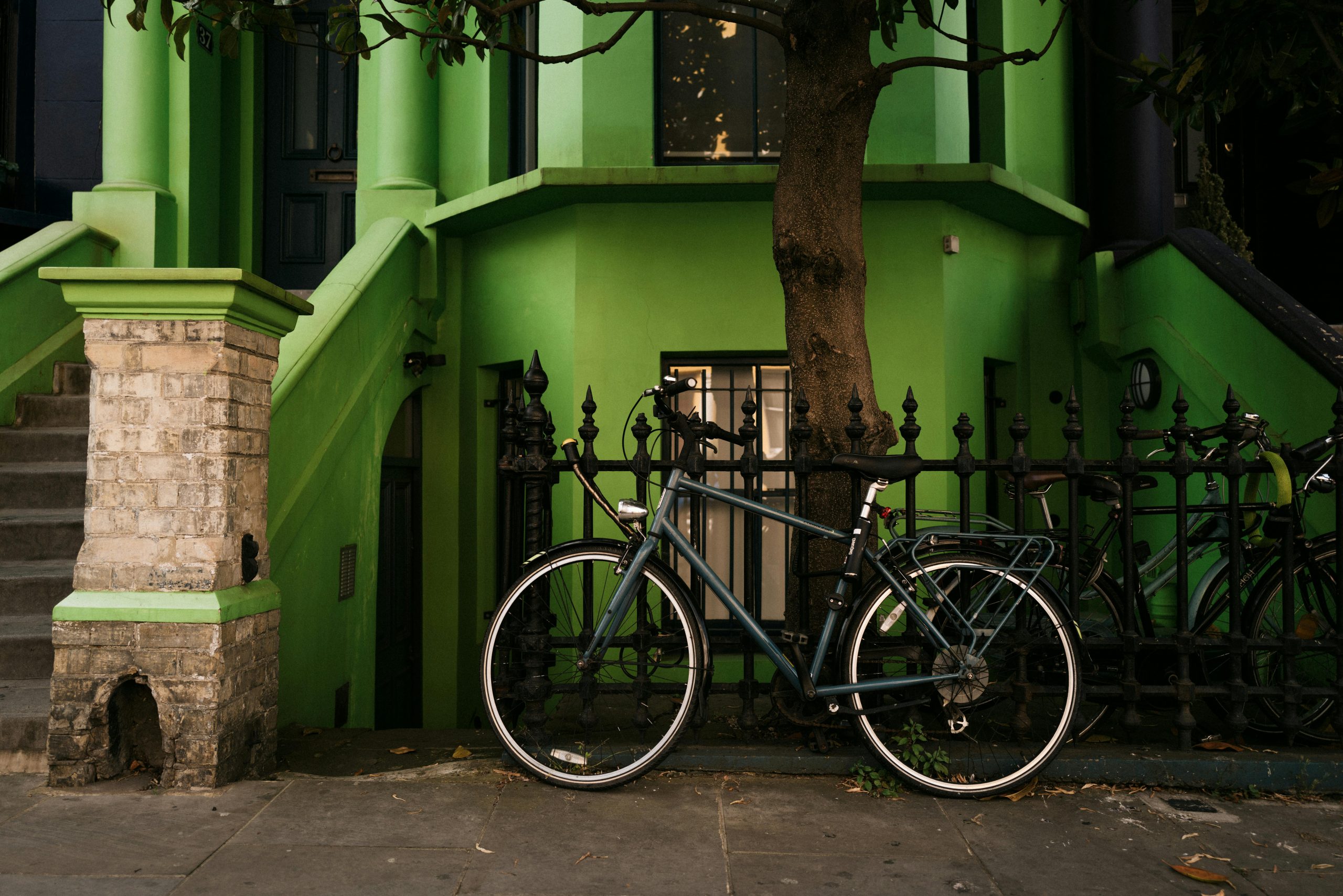
Buying a home in London with just a 5% deposit is achievable. This guide covers everything you need to know about first-time buyer mortgages in London: how to secure a deal with just a 5% deposit. A 95% mortgage allows buyers to purchase a home with a 5% deposit. Several options exist for mortgages requiring a 5% deposit, including standard 95% Loan-to-Value mortgages and the Deposit Unlock scheme. We’ll explain 5% deposit mortgages, eligibility criteria, mortgage options, and tips for finding the best offers.
Key Takeaways
- A 5% deposit mortgage allows first-time buyers to enter the London property market with a smaller upfront cost, significantly easing the path to homeownership.
- Eligibility for a 5% deposit mortgage hinges on factors like credit history, employment status, and passing affordability assessments, which lenders use to gauge risk.
- Exploring different lenders and using a mortgage broker such as Fox Davidson can uncover competitive terms for 5% deposit mortgages, while also providing guidance through the application process.
Call for immediate expert advice
Email with an outline of your requirements
Understanding 5% Deposit Mortgages
A 5% deposit mortgage allows buyers to secure a property with a smaller upfront investment, enabling them to purchase homes sooner and ease the path to homeownership. Various types of mortgages are available for a 5% deposit, including both conventional and government-backed schemes, each offering unique benefits and considerations. However, one potential drawback is that these mortgages often come with higher mortgage rates due to perceived increased risk by lenders compared to those requiring larger deposits.
Despite the higher rates, the opportunity to buy a home with a small deposit is a game-changer for many aspiring homeowners. It means avoiding the lengthy and often discouraging process of saving for a larger deposit, which can be especially challenging in a city like London where house prices are high. However, it is important to note that the risk of negative equity is higher with a 5% deposit mortgage compared to larger deposits.
Example of a 5% Deposit Mortgage in London
Consider a first-time buyer looking to purchase a £400,000 property in London. With a 5% deposit mortgage, the required deposit would be £20,000, allowing the buyer to secure a mortgage for the remaining £380,000.
Benefits of 5% Deposit Mortgages for First-Time Buyers
The primary benefit of a 5% deposit mortgage is that it enables buyers to enter the property market with minimal upfront costs. Reducing the initial deposit allows first-time buyers to purchase homes sooner than if they had to save for a larger one. This can be a crucial advantage in a competitive market like London, where property prices continue to rise.
Getting on the Property Ladder Sooner
5% deposit mortgages allow buyers to purchase homes more quickly, helping first-time buyers avoid the financial strain of long-term rent. While these time buyer mortgages may have higher mortgage rates, they present an opportunity to buy sooner, which is often more advantageous than renting.
For example, a £300,000 property with a 5% deposit would require a £15,000 bigger deposit, making it more feasible for buyers to enter the market sooner.
Building Equity
A 5% deposit mortgage allows individuals to avoid the lengthy period of saving for a larger deposit, enabling them to start building equity earlier. Through consistent mortgage payments, homeowners can increase their stake in the property.
Additionally, property value appreciation can further enhance the equity held by the homeowner. Home equity can be calculated by subtracting the outstanding mortgage from the property’s market value.
Eligibility Criteria for 5% Deposit Mortgages
The minimum deposit required for a first-time buyer mortgage is 5%. Common eligibility requirements for these mortgages include specific criteria set by lenders, such as credit history and passing affordability assessments. A strong credit rating is crucial for a low deposit mortgage. Factors considered in the lending assessment include finances, personal circumstances, employment status, and credit history. Mortgage lenders generally view 5% deposit mortgages as higher risk mortgages.
Self-employed individuals may face challenges, as some lenders require a higher deposit due to perceived risks. Additionally, self-employed individuals may find it more challenging to obtain a 5% deposit mortgage due to lender restrictions, making it essential to have comprehensive financial records. If taking a joint mortgage, the oldest applicant’s age is considered for eligibility.
Credit History and Affordability Assessment
A strong credit score significantly enhances the chances of mortgage approval. Credit scoring involves awarding points based on borrower information to help decide lending. An affordability assessment considers income, regular outgoings, and average living expenses.
When a mortgage term extends past the age of 70, retirement or employment income must be assessed. An Agreement in Principle (AIP) is a certificate indicating how much one could borrow based on personal details and a credit score. This can be facilitated by using an online mortgage calculator or applying for an AIP.
A mortgage broker can simplify the process by connecting you with mortgage lenders most likely to approve your application.
Employment Status
Lenders typically prefer applicants with stable employment, as it indicates reliable income. Employment status plays a crucial role in determining eligibility for a mortgage. Self-employed individuals may face additional scrutiny, making it important to have comprehensive financial records and potentially a larger deposit.
Choosing the Right Mortgage Lender
Exploring more lenders is crucial to find competitive terms for mortgages with a low deposit. Potential risks include higher interest rates due to the lender’s increased risk exposure. Assessing the lender’s reputation and customer service is also essential.
First-time buyers should secure a mortgage as a primary step, understanding various mortgage types like fixed-rate and variable.
Comparing Mortgage Rates
Choosing a fixed-rate mortgage provides payment stability over a set term, protecting against interest rate hikes. Variable-rate mortgages may offer lower initial rates but come with the risk of fluctuating payments. Different lenders may offer special deals, including lower initial rates or cashback options.
Discounted mortgages adjust their mortgage rate based on the lenders offer standard variable rate, potentially offering lower payments. Mortgage brokers can provide access to exclusive deals that are not available to the general public.
Using a Mortgage Broker
Using a London mortgage broker provides access to a wider range of mortgage options and expertise in navigating the mortgage market. Mortgage brokers help find mortgages find the right lender by matching borrowers with suitable mortgage products tailored to their financial situation.
They can simplify the process of comparing mortgage rates and identifying the best deals available from different lenders. Engaging a broker means having professional support that can help navigate complex mortgage processes and paperwork.
Government Schemes and Support
The government offers various programs aimed at assisting first-time buyers with lower deposit requirements. A range of government-backed initiatives are available, including help to secure mortgages with lower deposits and first time buyer relief. More than 50,000 95% LTV mortgages have completed using the mortgage guarantee scheme since it launched in 2021. The mortgage guarantee scheme was launched in 2021 to increase the supply of 5% deposit mortgages and stimulate the housing market.
The 2025 Mortgage Guarantee Scheme aims to assist buyers by:
- Allowing a deposit of only 5%.
- Some lenders may impose additional requirements for properties purchased under a 5% deposit scheme.
- First-time buyers are exempt from stamp duty on homes priced up to £300,000.
Help to Buy Scheme
The Help to Buy scheme supports first-time buyers by providing equity loans to cover part of the home purchase cost. This scheme allows first-time buyers to purchase newly built homes with a smaller deposit. It is a valuable option for those looking to get onto the property ladder sooner. The Deposit Unlock scheme helps people buy a new build home with just a 5% deposit.
Shared Ownership
Shared ownership is an alternative home purchasing scheme designed to assist those who have difficulty saving for a larger deposit. With shared ownership, buyers can purchase a percentage of a property and pay rent on the remaining share, enabling them to enter the property market with a smaller upfront cost. This scheme allows individuals to gradually increase their ownership over time.
The Help to Buy scheme offers additional support for buyers considering shared ownership.
Applying for a 5% Deposit Mortgage
The application process for a 5% deposit mortgage is a step-by-step process that allows first-time buyers to navigate through their mortgage journey in acquiring funds to purchase their home. The first step is obtaining an agreement in principle, which helps you understand your borrowing capacity. To get a mortgage with a 5% deposit in London, a first-time buyer should use a mortgage broker and secure an Agreement in Principle (AIP). You must provide documentation such as proof of income, credit history, and any existing debts during the mortgage application.
After securing an agreement in principle, you can proceed to submit a full mortgage application, which will involve providing detailed financial information and necessary documentation. First-time buyers should also consider unexpected costs such as legal fees, valuation expenses, and potential stamp duty.
Obtaining an Agreement in Principle
An Agreement in Principle (AIP) involves the following:
- It is a quote from a lender estimating how much you could borrow.
- Obtaining an AIP involves a soft credit check.
- A credit reference agency conducts a credit search to provide a credit score.
- The credit score is essential for obtaining an AIP.
An agreement in principle indicates a lender’s preliminary assessment of your borrowing potential based on your financial details, giving you a rough idea of what you can afford. Having an AIP before house hunting is beneficial as it sets a price range for your property search.
It is important to note that an AIP is not a guarantee for a mortgage; it is subject to further checks and does not guarantee lending.
Full Mortgage Application
Once your offer on a property is accepted, you can proceed to submit a full mortgage application to secure the loan. The full mortgage application process includes detailed assessments of your financial information, and you can apply for a mortgage offer on the property.
This step is crucial for finalizing the mortgage and ensuring all necessary documentation is in order.
Additional Costs to Consider
Many first-time buyers often overlook the additional costs associated with purchasing a property purchase, including legal fees and insurance, beyond just the deposit. First-time buyers need to prepare for additional costs such as conveyancing fees, insurance, and stamp duty when purchasing a property. Valuation fees are incurred when a lender needs to assess the value of the property being purchased.
Understanding and budgeting for other costs, such as standard setup costs and buildings insurance, is crucial for first-time buyers.
Legal Fees and Conveyancing
Conveyancing fees typically range from £500 to £1,800, depending on the property’s value and complexity. Legal fees, including conveyancing costs, are essential to consider when purchasing a property. These costs cover the legal work required to transfer ownership of the property and ensure all necessary checks are completed. Land Registry fees are necessary to register the property under your name after purchase. A Lifetime ISA helps first-time buyers save for a deposit by providing a 25% government bonus on savings up to £4,000 per year.
Stamp Duty and Other Taxes
Stamp Duty is a tax on buying a new home; the specific rate can vary based on the region. Not all buyers will have to pay Stamp Duty; certain exemptions may apply. It is important to understand these costs upfront to avoid any surprises during the purchasing process.
Remortgaging Options for 5% Deposit Mortgages
Remortgaging a 5% deposit mortgage may have limitations, including fewer lender options and potentially higher interest rates. However, remortgaging works similarly for a 5% deposit mortgage as it does for mortgages with more equity.
At the end of a mortgage deal:
- The loan typically shifts to a Lender Variable Rate.
- Borrowers can choose to move to a new product.
- Homebuyers have an opportunity to remortgage onto a better deal if their equity has increased.
- Increased equity can help secure better remortgage terms and lower interest rates.
Building Equity for Better Deals
Home equity is calculated as the property value minus the outstanding mortgage balance and loans, which can be understood through a mortgage calculation. For example, a home valued at £200,000 with a £190,000 mortgage has £10,000 equity.
Increased equity can enable access to more mortgage options and better rates when remortgaging. Switching from a variable to a fixed-rate mortgage can be advantageous if future rate increases are anticipated.
Tips for First-Time Buyers in London
Outer London zones 4-6 are recommended for better affordability compared to central areas. These outer areas have the potential for property value growth, making them attractive for investment.
First-time buyers should consider exploring various neighborhoods to find properties they can afford. Balancing affordability with the right location is crucial for first-time buyers aiming to enter the London property market successfully.
Researching Neighborhoods
When choosing a neighborhood, first-time buyers should consider:
- Practical aspects like budget and commute
- Lifestyle preferences
- Exploring various areas
- Considering neighborhoods that may be less familiar to uncover potential value
- A reserve fund is advisable to cover any unforeseen expenses that arise in the home buying process.
- Practical aspects like budget and commute
- Lifestyle preferences
- Exploring various areas
- Considering neighborhoods that may be less familiar to uncover potential value
Visiting neighborhoods at different times can provide insights into the area’s dynamics, helping buyers gauge noise levels and community vibe.
Working with Estate Agents
Effective communication with estate agents is vital, as they can provide insights about available properties that fit the buyer’s criteria. First-time buyers should establish clear communication with estate agents about their budget and property preferences to streamline the search process.
Maintaining a good relationship with show estate agents can lead to better access to properties and more favorable negotiations.
Best Mortgage Deals for October 2025
The best rates for 5% deposit mortgages available in October 2025 are among the most competitive in the market. These mortgages are generally available in fixed and variable rates. A fixed-rate mortgage offers fixed payments over an initial term, typically ranging from 2 to 5 years.
One disadvantage of tracker mortgages is that they may lead to higher monthly payments if interest rates rise. Tracker mortgages vary their payments in accordance with changes in the base interest rate.
Fixed-Rate vs Variable-Rate Mortgages
In September 2025, fixed-rate mortgages generally offer lower rates compared to variable-rate options, making them more attractive in the current market. Fixed-rate mortgages provide payment stability, protecting against interest rate hikes, whereas variable-rate mortgages come with the risk of fluctuating payments.
Summary
Securing a first-time buyer mortgage in London with just a 5% deposit is not only possible but also practical. By understanding the benefits, eligibility criteria, and various mortgage options, you can make informed decisions. Government schemes and the right mortgage lender can further ease your journey onto the property ladder. Remember to consider additional costs and the potential of remortgaging for better deals in the future. The previous iteration of the Mortgage Guarantee Scheme ended in mid-2025; a new, permanent version launched in July 2025. With the right approach and support, your dream of homeownership in London can become a reality.
Frequently Asked Questions
A 5% deposit mortgage lets you buy a home by providing just 5% of the property’s value as your down payment, making it more accessible for many buyers. It’s a great option if you’re looking to enter the housing market without a hefty upfront cost.
To boost your chances of getting a 5% deposit mortgage, focus on improving your credit score, maintaining steady employment, and passing affordability checks. These steps can make a significant difference in your application.
When buying a home, don’t forget to factor in legal and conveyancing fees, insurance, and possibly stamp duty. These extras can add up, so it’s wise to budget for them!
Help to Buy and Shared Ownership are great schemes that can help you as a first-time buyer with just a 5% deposit. They make homeownership more accessible, so definitely check them out!
Choosing a fixed-rate mortgage offers you stable payments, making budgeting easier, while a variable-rate mortgage might save you money initially but comes with the risk of rising payments. It really depends on your comfort with risk and your long-term financial plans.



